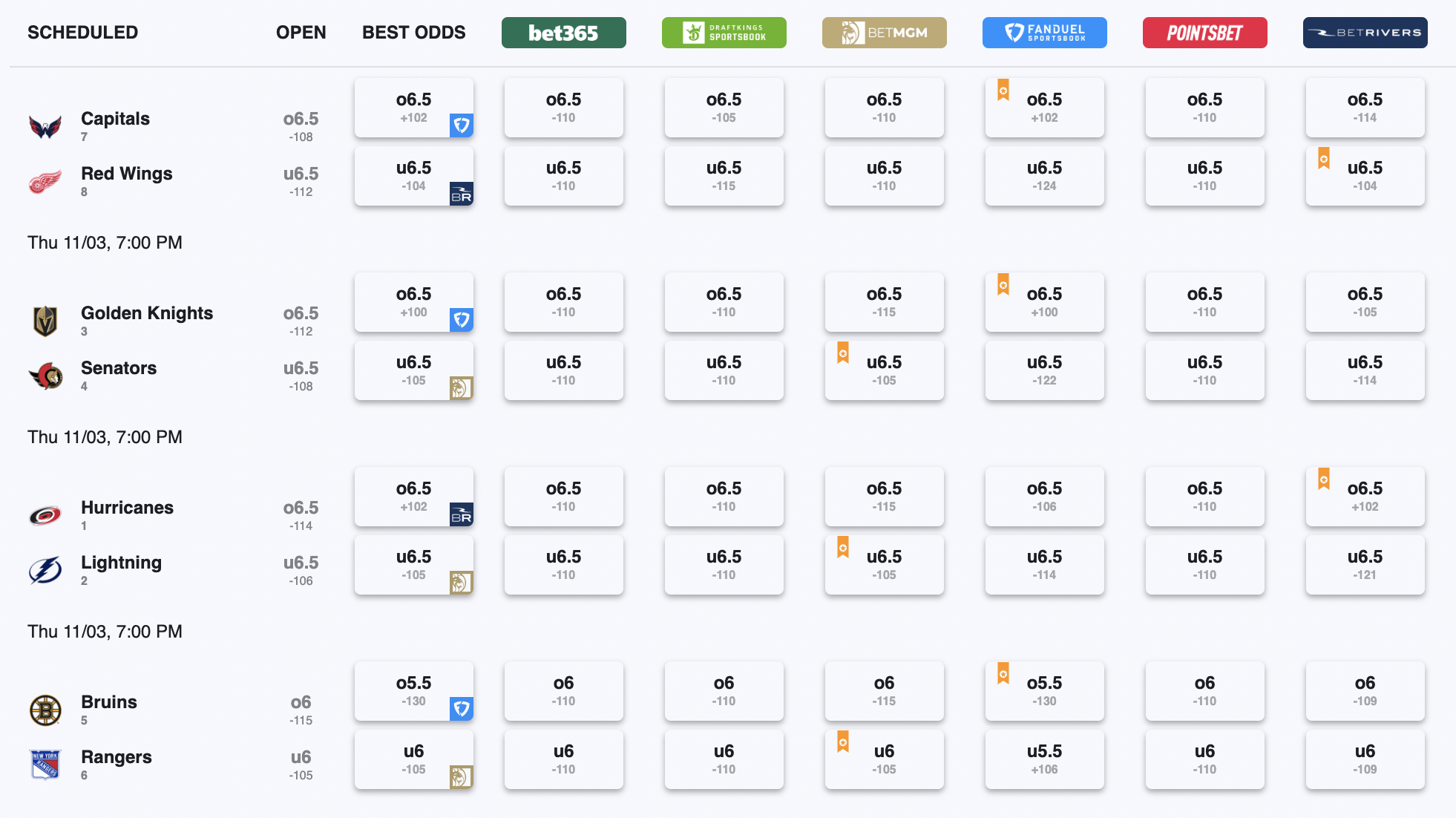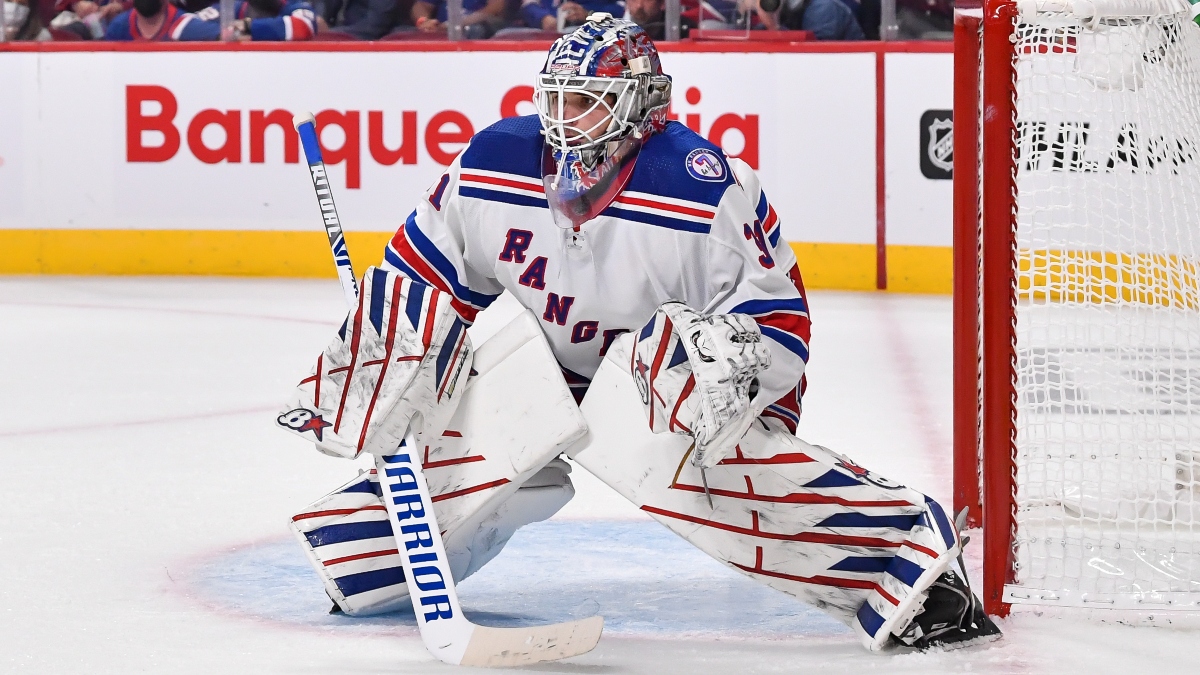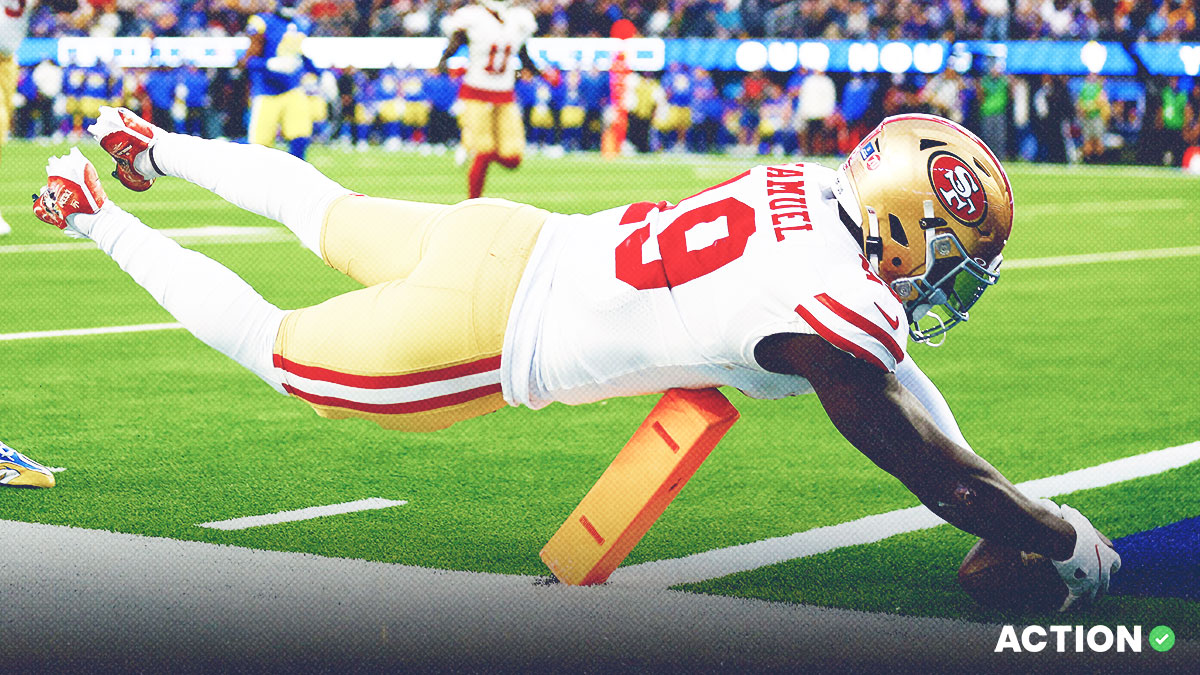Life's too short to bet the under. Right?
I suppose that depends — especially in hockey betting.
Betting the total in a hockey game is an exciting way to draw interest in any given matchup.
Hockey is volatile and unlike other sports' over/unders, sportsbooks can price the odds for either side at plus-money depending on several key variables.
So what do 5.5, 6 and 6.5 mean when listed next to the teams? We'll explain below.
What is Over/Under Hockey Betting?
If you don't want to support one team, placing an over/under bet is the best way to cheer for the hockey game itself — or against both defenses and goalies per se.
The most common totals listed in hockey are 5.5, 6 and 6.5. Sometimes you will see a 5 or 7. In the 2021-22 season, NHL teams scored 3.14 and allowed 3.00 goals on average per game. So, teams generally scored between 2-4 goals.
If you bet the over on a game set at 6.5 goals, you would need a minimum of sum of seven goals scored between both teams. The under is just the opposite: both teams would have to score a maximum of six goals to stay below 6.5.
Betting on Whole Number Totals
When a goal total is set at a whole number, there's a chance there are no winners or losers.
Suppose you bet either the over or under on a game with a total set at 6.
If the game ends at a final score of 6-0, 5-1, 4-2 or 3-3, the bet would result in a "push." This means your wager — and everyone else's who bet the total on that game — would be refunded.
Pretend that you bet $25 on the over for the Kings–Blues game on Oct. 31; the over/under was set at 6. The game resulted in a 5-1 Kings victory and your $25 would have been refunded.
Whole numbers will push much more often than in other sports given the low-scoring nature of hockey.
The Ruling on Overtime & Shootouts
An NHL regular season game has 60 minutes of 5-on-5 regulation play. If the score is still tied by the end of the third period, a five-minute 3-on-3 sudden-death overtime period will commence. If still no side has scored by the end of that, a shootout will decide the winner.
OK, so how does this affect the total?
The winner of overtime or the shootout is credited with the game-winning score, therefore it counts towards the total goals.
Let's say you bet the over at 6.5 on the Wild–Blackhawks game Oct. 30. At the end of regulation, the game was tied 3-3 for a total of six goals. The game prolonged itself into a shootout after no winner emerged in the overtime period.
The Wild won the shootout and therefore the game, 4-3. If you bet the over, your bet would have hit, because the total goals was pushed over 6.5 in the end.
How to Bet NHL Over/Under's
Before placing an over/under bet, it's beneficial to shop for lines across the different sportsbooks. Action Network's NHL Odds page has live updates to indicate where the best prices are being offered.

It's also safe to know who you're dealing with on the ice.
Most totals will be set at 5.5, 6 and 6.5. Since the start of the 2021-22 season, 96.5% of all totals have fallen in that range.
The only real outliers at 5 have both involved the Islanders, and the only 7.5's all involved the 21-22 Florida Panthers, who were scoring at an outrageous clip.
The first players to consider are snipers. If Connor McDavid and Leon Draisaitl of the Edmonton Oilers are playing any other marquee names, there is a pretty plausible chance it's going to be a barn burner, which is why so many of their totals are set at 6.5 and 7. Over their last 92 regular season games, just eight have had a total of 6, and none at 5.5.
When the Oilers played Sidney Crosby and the Pittsburgh Penguins on Oct. 24, the goal total was set at 7, which is pretty uncommon in today's NHL.
The Oilers won the game 6-3.
Since Edmonton has two of the league's perennial goal-scoring talents and — more importantly — a generally unsteady goaltending situation, they're usually an easy team to target the over for.
The next — and most important — players to think about at the starting goaltenders. If two elite goaltenders are playing each other, you're likely to see a low total.
When Igor Shesterkin of the New York Rangers faced Andrei Vasilevskiy of the Tampa Bay Lightning on Oct. 11, books had totals no higher than 5.5.
The Rangers won this game 3-1.
Regardless of what shooters were on the ice — and both teams have several — both goaltenders are known to steal games. The total was set accordingly. That said — just like baseball — starting goaltenders are the primary variable to consider when placing an over/under hockey bet.
It's wise to keep an eye out for the injury reports, too. Games that are missing the personnel-type are likely to have totals impacted. If not, it's an opportunity to take advantage.























































